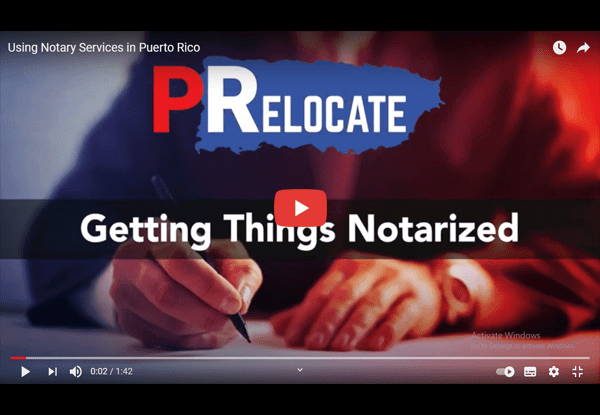What is the GILTI Tax, and How Does It Affect Non-Resident Export Services Tax Incentive Decree Holders?
- Posted: December 12, 2019
- Posted by: Travis Lynk
- Last Reviewed: May 24, 2021

Introduced on January 17, 2012, the Puerto Rican Export Services Act, better known as Act 20, was designed to help accelerate the economic recovery of Puerto Rico by attracting new businesses and employment opportunities to Puerto Rico. Service businesses ranging from advertising to accounting to legal services, as well as hedge funds and a wide range of other consulting firms are eligible for the benefits. As of January 1, 2020, Act 20 has been replaced by Act 60, which brings with it some changes to the requirements. Please read about the new incentives code in our Guide to Puerto Rico Export Services Tax Incentive – For Businesses.
Many companies have benefited from the 4% corporate tax rate that the export services tax incentive offers, with many not even leaving their residence in the US. While it is possible to benefit from the export services tax incentive as a non-Puerto Rico bona fide resident, this case is less compelling as of 2018 with Trump’s tax reform and the implementation of what’s called a GILTI tax.
What the GILTI Tax Changes
The GILTI—or Global Intangible Low-Taxed Income—tax was recently enacted by the Trump administration and targets U.S. companies that operate controlled foreign companies (CFCs) for tax purposes. U.S. business owners who run a Puerto Rican–incorporated company from the U.S. fall into this category, so naturally, all non-resident export services tax decree holders are subject to this new tax.
Under GILTI regulations, all US-owned CFCs are subject to a minimum corporate tax rate of 10.5%. This means that non-resident export services tax decree holders currently enjoying the 4% corporate tax rate must pay additional taxes to the IRS. A rate of 10.5% is still significantly lower than the standard U.S. corporate tax rate of 39%, so you can still enjoy lowered tax rates without moving out of the US.
In light of the GILTI tax, now only companies whose majority owner is a Puerto Rican resident can continue paying the low 4% rate. So, if you want to save that extra 6.5%, there’s only one option: become a Puerto Rican resident.
We would recommend speaking with a CPA to be certain on your break-even, before pursuing the non-PR based route.
The Requirements to Become a Puerto Rican Resident
There are three key requirements you have to meet to be considered a bona fide Puerto Rico resident. If you fail to meet even just one of the three, you will not be legally considered a Puerto Rico resident. PRelocate offers a detailed residency guide to help you navigate the process.
Spend Most of Your Time in Puerto Rico
It is not enough to simply purchase a home in Puerto Rico. You must truly move your life to Puerto Rico and convince the Puerto Rican government that the island is your primary home. This means spending at least 183 days a year in Puerto Rico.
You can spend the other 182 days of the year anywhere in the world. You can spend time in other homes or jump from place to place nomadically, but you must always return to Puerto Rico, and if you own homes elsewhere, you must prove to the Puerto Rican government that your Puerto Rican home is the most significant one. It is not advised to spend 183 days in your Puerto Rican home and the remaining 182 in another home located off the island, since your non-Puerto Rican life will then seem as significant as your Puerto Rican life, and the government will not be convinced.
Make Puerto Rico Your Tax Home
Your tax home is the center of your economic activity—in other words, your office. In order to continue benefiting from the export services tax incentive under the GILTI tax, you have to move your office to Puerto Rico. You can still own and operate bank accounts in the US, but it is not recommended to conduct all your financial activity through your U.S. accounts, as this will not help convince the Puerto Rican government that Puerto Rico is your tax home. The more economic ties to Puerto Rico you can demonstrate, the better, so it is recommended to make heavy use of your Puerto Rican bank account.
Prove That You Don’t Have Closer Connections Elsewhere
There are various ways that you can persuade the Puerto Rican government that you don’t have closer connections anywhere else. Moving yourself and your family into a permanent home on the island is just one factor (it will not be so convincing if you don’t move your family). Move significant personal belongings to your new Puerto Rican home, as well.
You should also become part of your local Puerto Rican community, befriending locals and making professional contacts.
Establish your ties on paper, too. Obtain a Puerto Rican driver’s license, list Puerto Rico as your official country of residence on documents and forms, and register to vote (and actually vote) in Puerto Rico.
Fill Out the Necessary Forms
Moving to another territory always involves paperwork, and relocating to Puerto Rico is no exception. If you begin or end bona fide residence in Puerto Rico, you are obligated to fill out the IRS Form 8898 – Statement for Individuals Who Begin or End Bona Fide Residence in a U.S. Possession IRS. A separate file with instructions is provided. Make sure to reference it so that you fill out the form correctly.
Do Not Cut Corners
Some people try to cut corners and trick the Puerto Rican and U.S. governments into believing they are bona fide Puerto Rican residents, but this can end up being a costly endeavor. Either commit fully to your new life in Puerto Rico, or pay the extra taxes to the IRS to continue enjoying your life in the US. If you are willing to fully commit to the move, you will gain not only remarkably low corporate tax rates but also a life in a Caribbean island paradise with beautiful beaches and great weather (except for the occasional hurricane).
Disclaimer: Neither PRelocate, LLC, nor any of its affiliates (together “PRelocate”) are law firms, and this is not legal advice. You should use common sense and rely on your own legal counsel for a formal legal opinion on Puerto Rico’s tax incentives, maintaining bona fide residence in Puerto Rico, and any other issues related to taxes or residency in Puerto Rico. PRelocate does not assume any responsibility for the contents of, or the consequences of using, any version of any real estate or other document templates or any spreadsheets found on our website (together, the “Materials”). Before using any Materials, you should consult with legal counsel licensed to practice in the relevant jurisdiction.
More Articles
-
The Process to Purchase a Used Car in Puerto Rico

Read MoreDecember 18, 2022 -
Using Notary Services in Puerto Rico

Read MoreOctober 12, 2020



